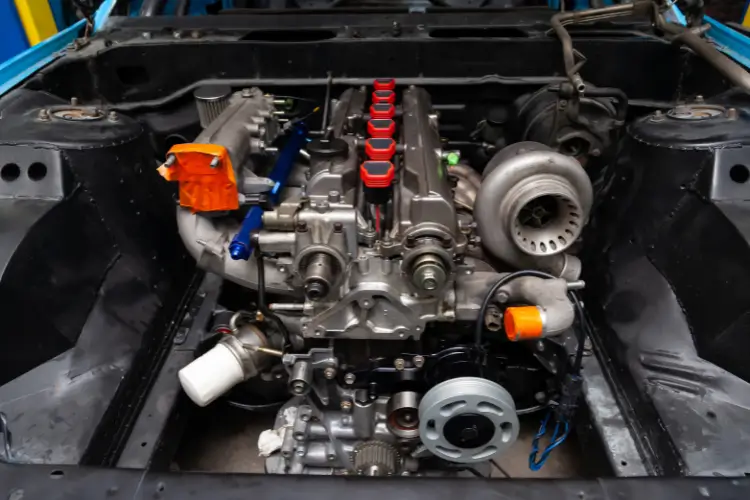Understanding Engine Tuning Basics
Engine tuning is a process that involves modifying or adjusting various components of a vehicle’s engine to optimize its performance. This practice has been around since the early days of automotive engineering, but modern technology has taken it to new heights. Today, engine tuning can significantly improve a vehicle’s power output, fuel efficiency, and overall driving experience.
The Goals of Engine Tuning
The primary objectives of engine tuning include:
- Increasing horsepower and torque
- Improving fuel economy
- Enhancing throttle response
- Optimizing engine efficiency
- Customizing performance characteristics
Types of Engine Tuning Methods
Mechanical Tuning
Mechanical tuning involves physically modifying engine components to improve performance. Some common mechanical tuning methods include:
- Installing high-flow air filters
- Upgrading exhaust systems
- Modifying camshafts
- Installing turbochargers or superchargers
- Porting and polishing cylinder heads
These modifications can significantly boost engine power but often require considerable expertise and investment.
Electronic Tuning
Electronic tuning has become increasingly popular due to its ease of use and effectiveness. This method involves adjusting the engine control unit (ECU) parameters to optimize performance. Electronic tuners can modify various aspects of engine operation, such as:
- Fuel injection timing and duration
- Ignition timing
- Boost pressure (for turbocharged engines)
- Rev limiters and speed governors
One popular electronic tuning device is the hypertech tuner, which allows users to adjust their vehicle’s performance settings easily.
Benefits of Engine Tuning
Increased Power Output
One of the most sought-after benefits of engine tuning is the increase in horsepower and torque. Power gains can range from modest improvements to substantial increases depending on the vehicle and tuning method.
Improved Fuel Efficiency
Contrary to popular belief, engine tuning can actually improve fuel efficiency when done correctly. By optimizing the air-fuel mixture and ignition timing, tuned engines can operate more efficiently, potentially leading to better gas mileage.
Enhanced Driving Experience
Tuned engines often provide a more responsive and enjoyable driving experience. Improved throttle response, smoother power delivery, and customized performance characteristics can make a vehicle feel more alive and engaging to drive.
Personalization
Engine tuning allows car enthusiasts to tailor their vehicle’s performance to their specific preferences and driving style. This level of customization is particularly appealing to those who want a unique driving experience.
Potential Risks and Considerations
While engine tuning can offer numerous benefits, it’s important to be aware of potential risks and considerations:
- Warranty implications
- Increased wear and tear on engine components
- Potential for engine damage if not done correctly
- Legal considerations (emissions regulations)
- Insurance implications
It’s crucial to research and understand these factors before proceeding with any engine tuning modifications.
Choosing the Right Tuning Method
Selecting the appropriate tuning method depends on several factors:
- Vehicle make and model
- Current engine condition
- Performance goals
- Budget
- Technical expertise
For those new to engine tuning, electronic tuners offer a user-friendly and reversible option. More experienced enthusiasts might opt for a combination of mechanical and electronic tuning to achieve maximum results.
The Future of Engine Tuning
As automotive technology continues to advance, the future of engine tuning looks promising. Some emerging trends include:
- Integration with electric and hybrid powertrains
- Advanced machine learning algorithms for real-time performance optimization
- Cloud-based tuning solutions for remote updates and adjustments
- Increased focus on eco-friendly tuning options
These developments are likely to make engine tuning more accessible, effective, and environmentally conscious in the coming years.
Engine Tuning: DIY vs. Professional Services
DIY Tuning
Pros:
- Cost-effective
- Hands-on learning experience
- Flexibility to make adjustments at any time
Cons:
- Risk of errors or damage
- Limited access to professional-grade tools
- Potential warranty issues
Professional Tuning Services
Pros:
- Expert knowledge and experience
- Access to advanced tuning equipment
- Often includes warranty on work performed
Cons:
- Higher cost
- Less control over the process
- Potential wait times for appointments
Best Practices for Engine Tuning
To ensure the best results and minimize risks when tuning your engine, consider the following best practices:
- Start with a well-maintained engine
- Research thoroughly before making any modifications
- Use high-quality parts and reputable tuning devices
- Make incremental changes and test thoroughly
- Keep detailed records of all modifications and performance data
- Stay within safe operating limits for your engine
- Consider professional advice for complex modifications
Measuring Tuning Results
To accurately assess the effectiveness of engine tuning, it’s important to measure performance before and after modifications. Some key metrics to consider include:
- Horsepower and torque (measured on a dynamometer)
- 0-60 mph acceleration times
- Quarter-mile times (for performance-oriented tuning)
- Fuel consumption
- Emissions output
By tracking these metrics, you can quantify the improvements achieved through tuning and make informed decisions about further modifications.
Closing Thoughts
Engine tuning offers exciting possibilities for automotive enthusiasts looking to enhance their vehicle’s performance. Whether seeking more power, better fuel efficiency, or a personalized driving experience, tuning can help you achieve your goals. However, it’s crucial to approach the process with careful consideration, thorough research, and respect for your vehicle’s limitations. By following best practices and staying informed about the latest developments in tuning technology, you can unlock your vehicle’s true potential while minimizing risks.




